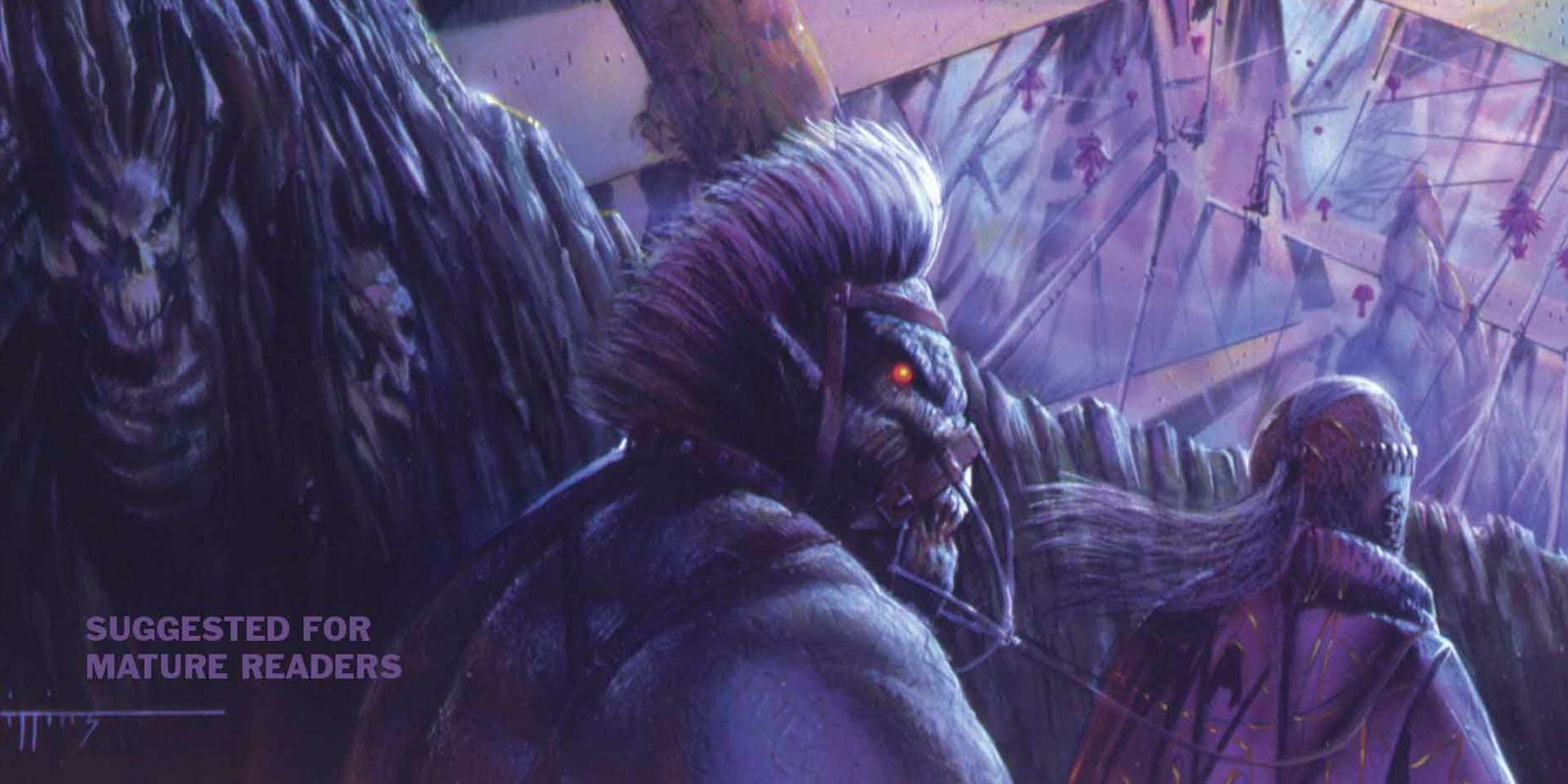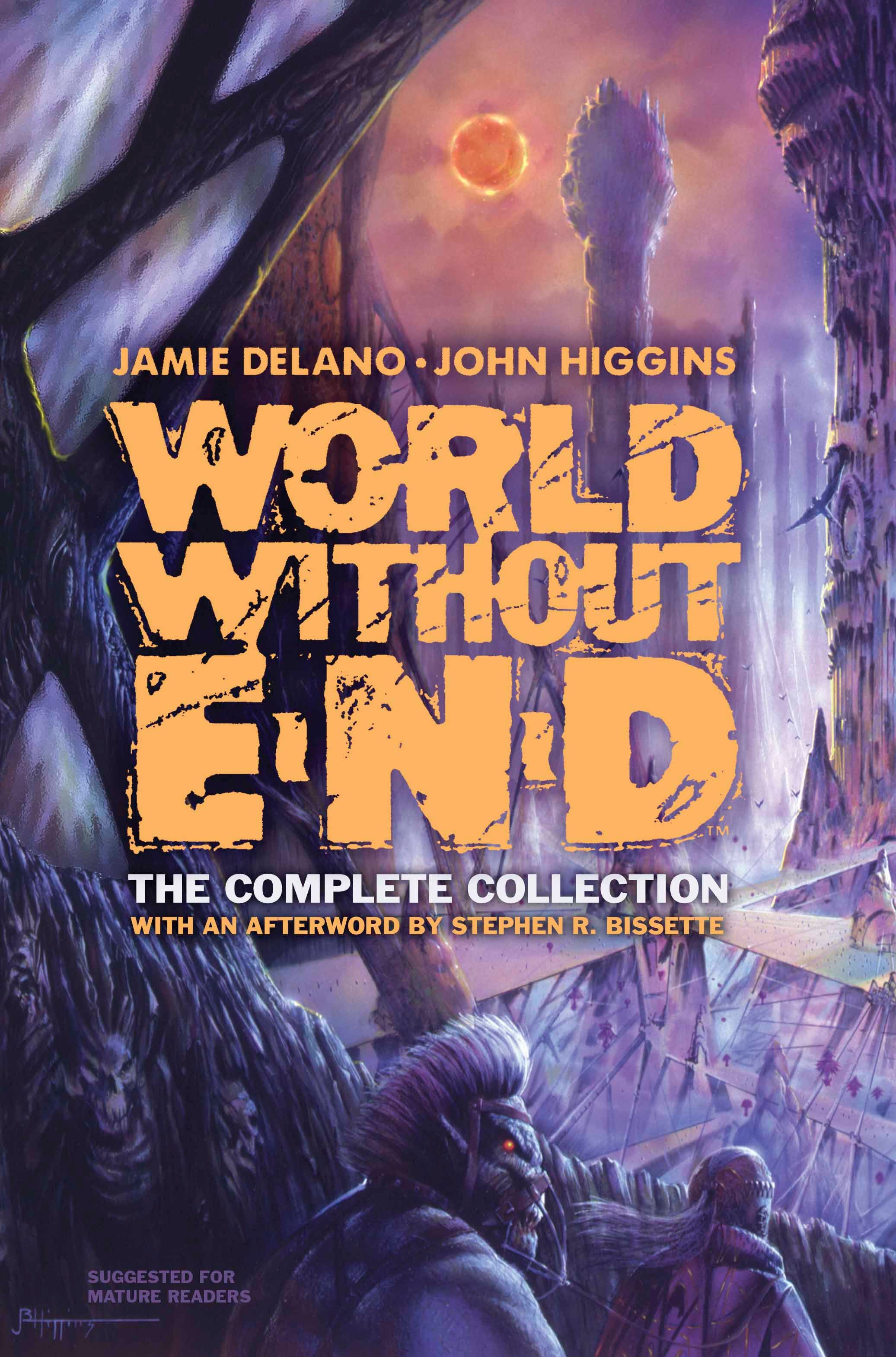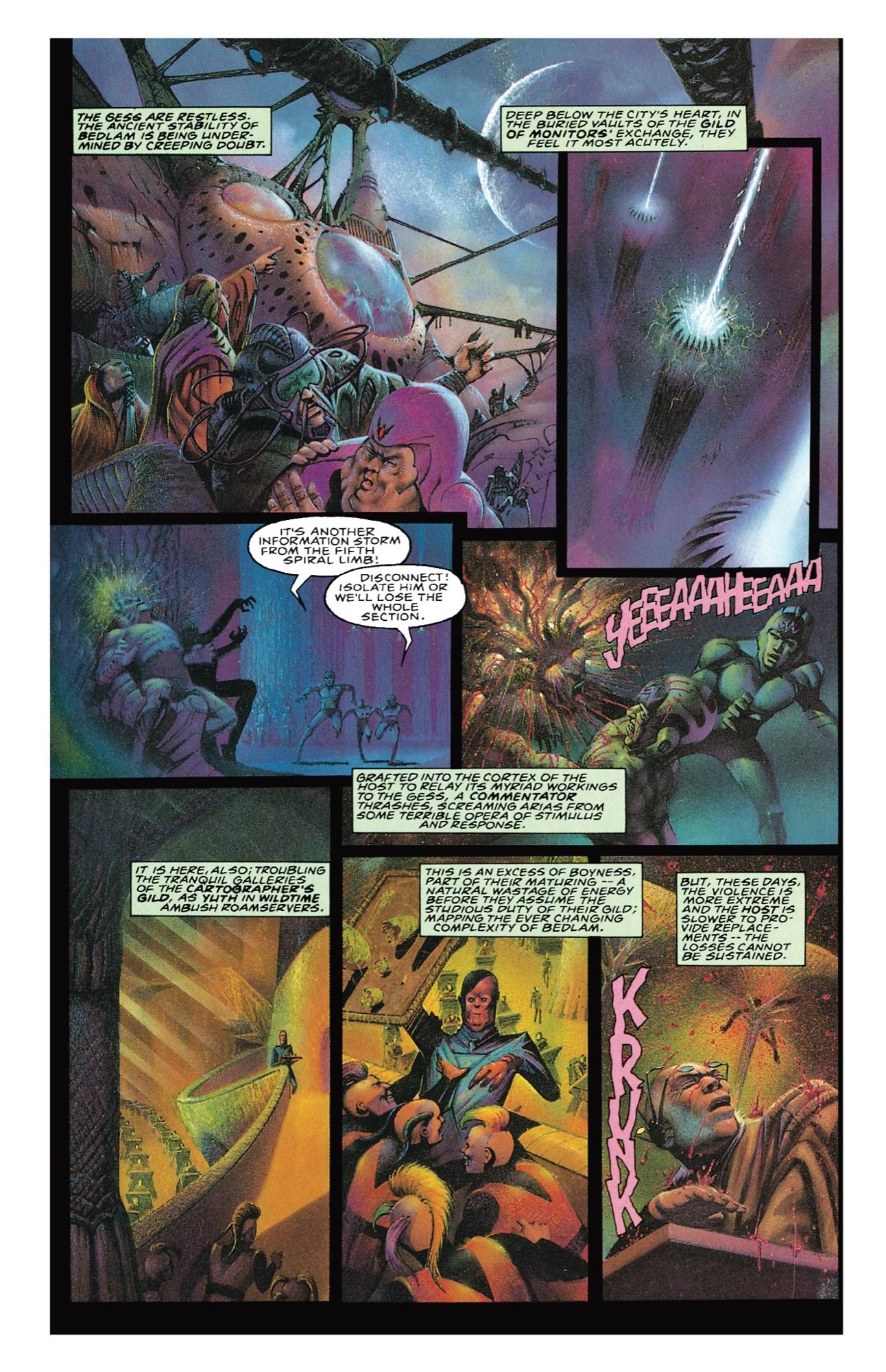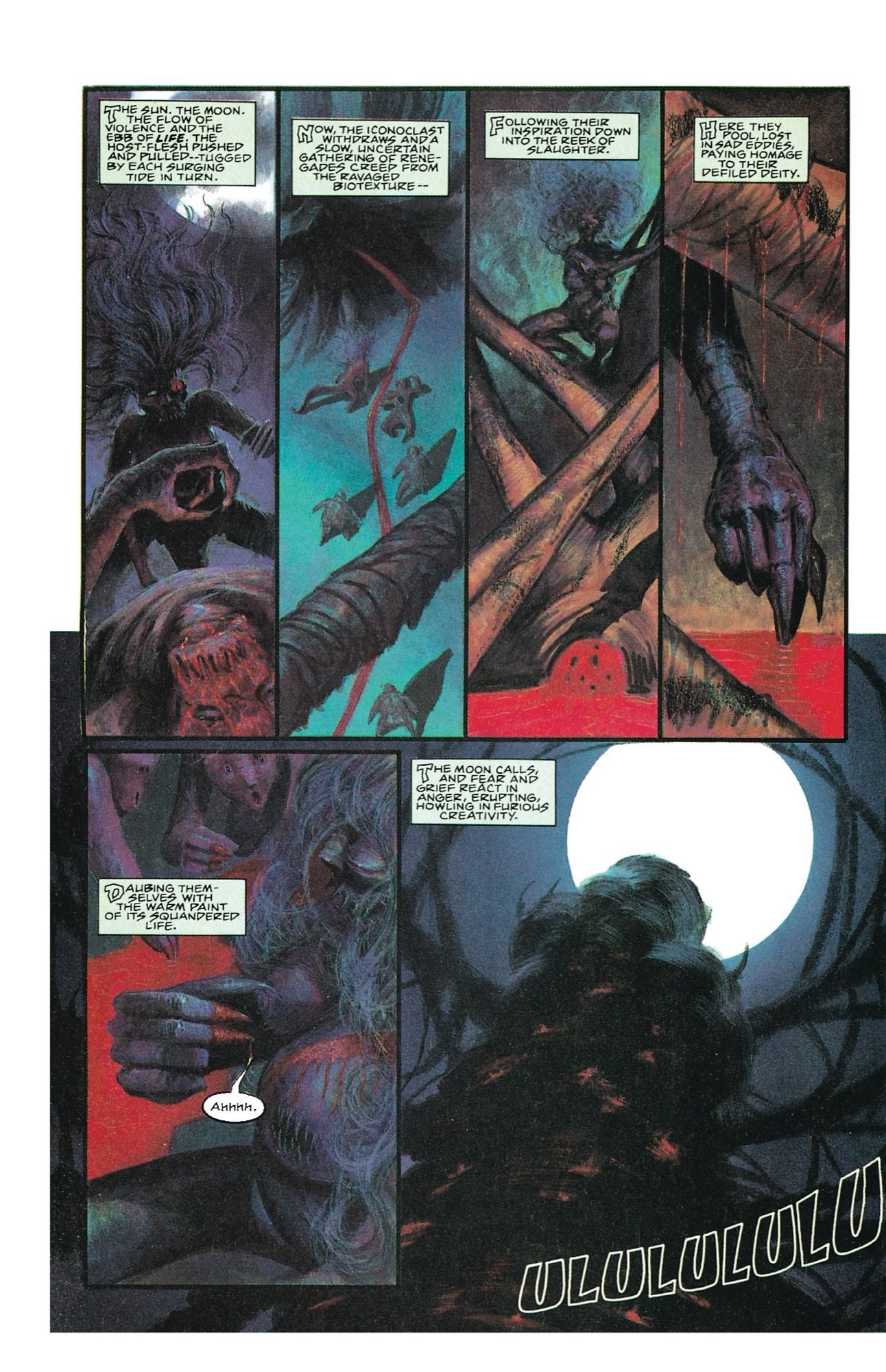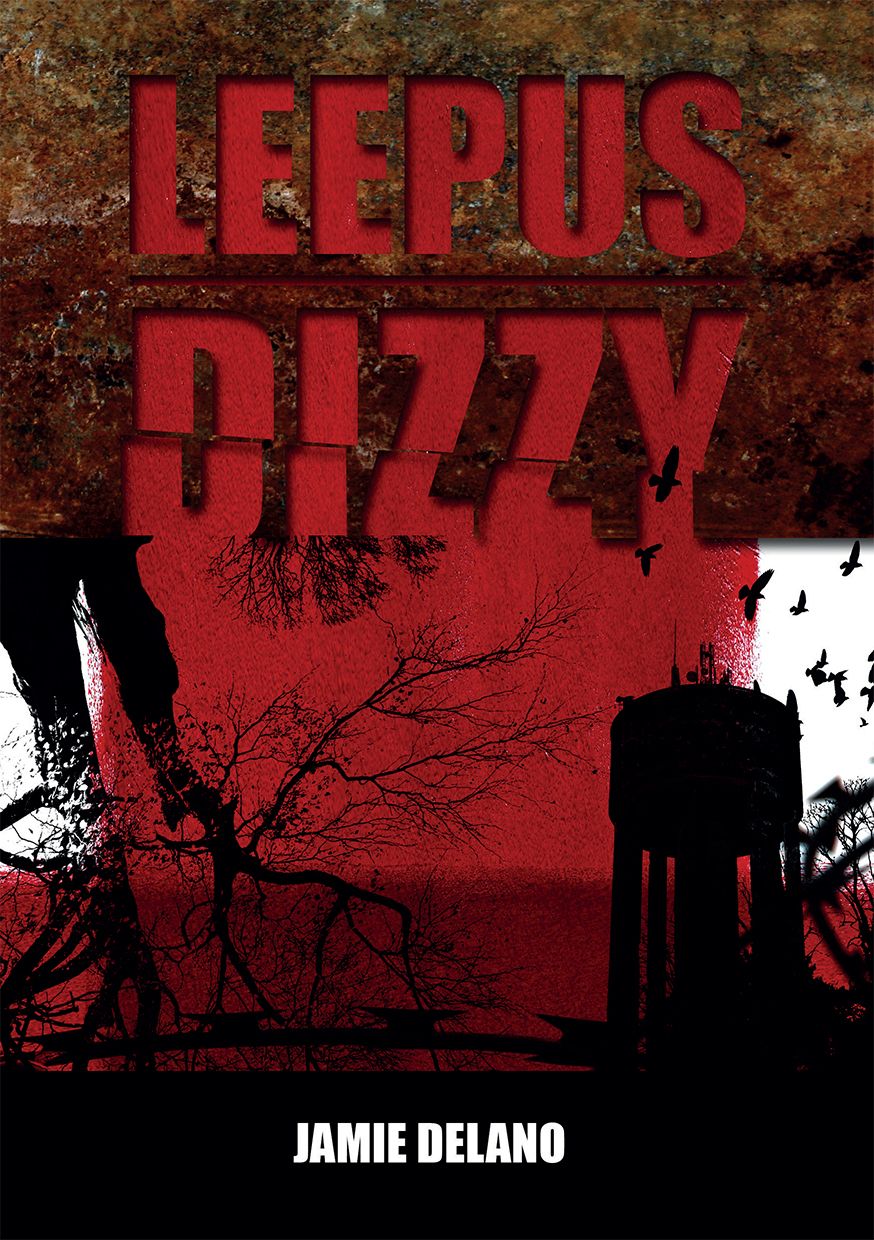Jamie Delano is quite simply one of the most talented and influential comics writers of his generation. Perhaps best known as the original writer of “Hellblazer," Delano's run established the character of John Constantine as a solo lead, and crafted the book’s combination of political and social commentary with horror in a way that has endured in the years since.
Delano went on to write many other comics, including a long string of projects at Vertigo including “2020 Visions,” “Hell Eternal,” “Tainted” and more, accompanied by some of the best artists in the business. In recent years, Delano has stepped away from comics and focused on writing prose, which he publishes through his own Leepus Books.
One of Delano's Vertigo projects was the miniseries “World Without End,” which he created with artist John Higgins. With the series just collected in a hardcover edition by Dover Publications, Delano looked back on the project with CBR, also discussing the novels he’s been working on in recent years, and the benefits of creative work being driven by political anger.
CBR:It's been a while since it was released, so how would you describe yours and John Higgins' "World Without End?"
Jamie Delano: “World Without End” was, and is, a far-future fantasy, an extreme speculative fiction extrapolation of some of the more undesirable political and cultural tendencies that afflict our human psyche. Its setting is a world whose geological landscape has been long-superseded by living flesh, evolved to the point of degradation -- as I think I recall -- from a ‘prehistoric’ biologically engineered elite leisure resort. Bedlam, as this future is known, is peopled by the mutated descendants of the staff and guests preserved by this autonomous establishment through a catastrophic environmental degradation. The dominant culture is “masculist,” authoritarian and oppressive, but there exists -- “underground” in the necrotic wastelands -- a feminist resistance. Both these divergent cultures are mutated beyond the recognizable to the point of parody. The resulting conflict of “fundamentals” provides the focus for some outrageously tongue-in-cheek drama, depicted through gorgeous painted art and florid linguistic flights of fancy of a somewhat purple tint.
Brother Bones is a strange but memorable character. Where did he come from and how much of his look and his language was your idea?
Brother Bones -- a genetically engineered masculist super-commando -- has his genesis in an idea for a series originally destined for a proposed British anthology that (and I hope but won’t guarantee that I’m accurate here in my recollection) David Lloyd was trying, ultimately unsuccessfully, to put together. Longer story short – some time later, a high-ranking member of DC staff suggested at a party that maybe I would like to consider working on a Batman graphic novel, maybe painted by John Higgins. Somewhat arrogantly perhaps, I replied that I’d rather do an original project with John, and, as it happens, we have this thing we’d like you to consider...
Bones was kind of my sly take on a perceived adolescent-male desire for uncompromising, ultra-violent warrior “heroes.” His look was entirely of John’s imagining; I take full responsibility for his motivation and language.
I kept thinking that for comics this was a weird book, but it reminded me in some ways of this tradition of science fiction stories like Russell Hoban’s “Riddley Walker,” and people like Burroughs and Ballard and Wyndham and others. Were those the sort of books you found interesting?
Wyndham to a lesser degree, but the others mentioned can definitely be described as both of interest and influential. I read and enjoyed a lot of science/speculative fiction in my formative years, and might expand your suggestions to include such as (and in no particular order): Dick, Jose Farmer, Disch, Delaney, LeGuin, Brunner, Lessing, Moorcock, etc.
Now, you were writing “World Without End” after “Hellblazer” had become a big success, and it's a very different book from that. Besides just wanting to do something different, what did you want to do? I assume you and John Higgins had a lot of creative freedom with the book.
We did have a lot of creative freedom; I’m very grateful for the trust – perhaps misplaced – of DC’s management of the day. Specifically, that of editor, Karen Berger.
What did I want to do with this freedom? I don’t think I really had a plan, other than to take the opportunity to indulge a penchant for building bonkers allegorical worlds and playing around with weird concepts and language. I was deeply involved in my work on “Hellblazer,” and mired in the persona of its lead. But John Constantine’s was an intense and oppressive reality to inhabit – perhaps a bit too close to my own, and he was not a totally original product of my imagination. Maybe I was a bit stir crazy. “World Without End” offered me a chance to splurge all over a blank imaginary canvas and I guess I went a bit nuts with it.
I was rereading your “Hellblazer” run earlier and I was struck by how good it is -- which I always thought -- but also by how political it was, and how angry it could be. A lot of creators are politically angry right now, and honestly, it’s hard writing political stories that aren’t didactic or dull. You’ve done this throughout your career, and I wondered how you’ve approached it.
For me, the two biggest incentives encouraging me to the keyboard -- other than the piteous whimpering of hungry children -- have been boredom and anger. Whether my fiction is fantasy or “real-world” based, it is generally powered by my existential preoccupations. Far-future flesh-scapes and the supernatural are usually co-opted by my imagination for the purpose (however tenuous) of allegory -- although the intention is not didactic. Writing, for me, is a largely subconscious process. I’m not good at planning, or structuring rational moral arguments; I allow the writing process to subsume me – immerse myself in the “reality” of a story and inhabit the characters in more-or-less successful attempts to subjectively share their experience of the worlds to which I consign them. Since most of them therefore must reflect aspects of myself and my worldview, I guess maybe the politics is more organic than polemic. Others may well disagree.
I can’t speak for other writers, but I am certainly currently angry/despairing, while oddly resigned to the probably catastrophic change bearing down on our “civilization.” Politically, culturally and environmentally, we have reached a tipping point -- which I have anticipated for decades -- from which it is probably too late to scramble back. It remains to be seen what nature of beast crawls from the wreckage -- maybe a degenerate monster; maybe a wonder of evolution. I suspect it may take a while to know for sure. I presume to offer no advice for others on how to address this situation, other than to remind them of the power of imagination -- to inspire both good and ill -- and to be careful what you wish for. The raw potential of revolutionary chaos relished in youth may seem less appealing in one’s dotage.
“World Without End” and “Hellblazer” aren’t the only work you did at DC/Vertigo -- I first got to know your work from the mid-late 1990s like “Ghostdancing,” “Tainted,” “Batman Manbat,” “Hell Eternal,” “2020 Visions.” Is there any chance we’ll see any of these reprinted one of these years?
The rights in most of the titles you mention above remain with DC. I’d be happy to see any of them reprinted. “2020 Visions” is back in the ownership of its creators and currently without an English-language edition. We’re open to any offers to rectify that situation. Same goes for “Cruel & Unusual.” There is a chance that a new, re-colored edition of “Outlaw Nation” might eventually be forthcoming, if enough interest can be engendered. Otherwise, I have it vaguely in my mind to one day do them through my Lepus Books imprint as print-on-demand editions.
So, reading “World Without End” in this new collection, 25 years after it first came out, I’m curious what you think of it.
I haven’t re-read “World Without End” properly since it was published. I generally find it hard to revisit finished stories -- uncomfortable even, in that they are products of my mental condition at a specific time of my life and, consequently, (as well the worry that I’ll be embarrassed by their ineptitude) I find the dissonance between the evoked then and now a little disconcerting. Maybe I’ll keep them by me for my accession to the eventual Dementia Home, to use as aides memoir to a past riddled by confusion. That said, I have looked through the book and found it a very pleasing production. Dover have done a fantastic job on their edition – probably some of the highest printing standards enjoyed by anything I’ve written. And John’s art certainly deserves such treatment. Let me just take a moment to thank the editors -- Drew Ford and Peter Lenz -- and the design team at Dover for making this excellent edition happen; and DC Comics and Karen Berger, for taking the original chance. Not forgetting top lettering by Richard Starkings and insightful afterword by Steve Bissette.
You’ve been writing prose in recent years. What have you been working on?
I took a short break from writing comics a few years ago, which somehow grew into an indefinite hiatus. It was my expectation as child that, one day, I would write novels. Realising that I was approaching sixty years of age without having made any effort to achieve this ambition, I decided maybe I should get on with it while I still had time. Much angst and procrastination ensued- but eventually I completed “Book Thirteen,” an in-no-way-autobiographical black comedy family saga, featuring a blocked “Old Writer” who’s harassed to the point of dementia by his perceived need to successfully craft a plot in which the arcs of his nearest and dearest carry them clear of calamity. When it was done I liked it, but was too shy to risk it with agents and conventional publishers, opting instead for the financially suicidal route of publishing it myself.
Since its one-title inception Lepusbooks.co.uk, has expanded its remit a little to become a small co-operative publisher-of-last-resort for a few pals with something to say and an interesting way of saying it. “LEEPUS | DIZZY” is my second novel, and a bit more “genre” than the first: file it under weird, dystopian, alternate reality, apocalypse junkie wish-fulfillment. Although sales and exposure have so far been minimal, I like the Leepus environment enough to be two-thirds through a second visit. I expect “LEEPUS | THE RIVER” to be finished and in print before the summer of 2017. Emotionally, I haven’t completely abandoned comics- but writing prose is absorbing, personally satisfying and time-consuming.
Dover's hardcover edition of "World Without End" is now available.

